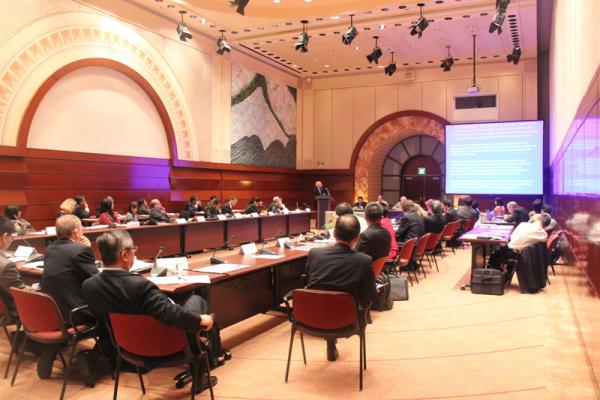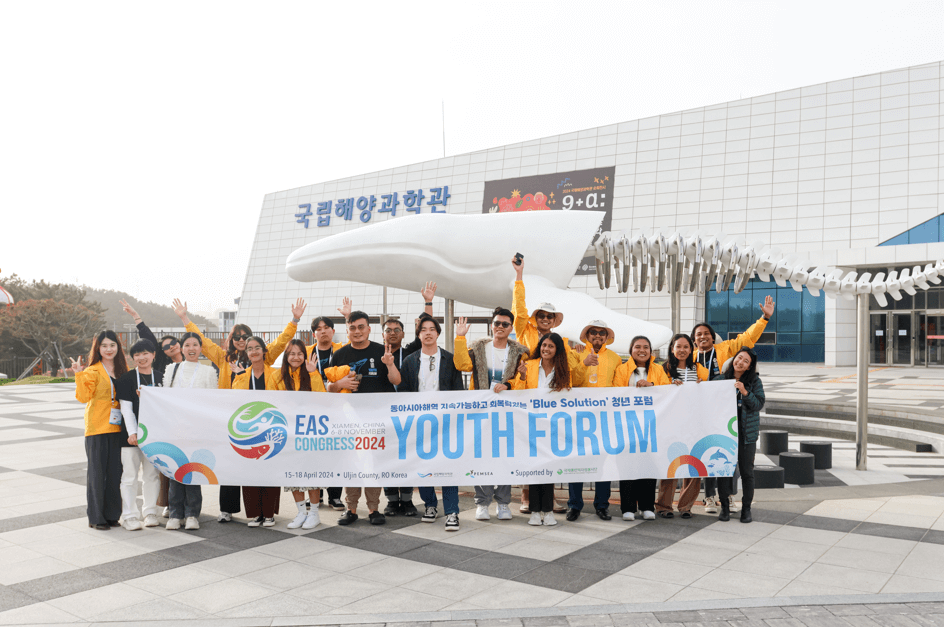More Programmatic Investments Needed in the East Asian Seas Region
Monday, 20 December 2010

Manila, Philippines — Representatives from East Asian countries and regional programmes and organizations convened for two days to assess the status and challenges to sustainable management of the East Asian Seas region, and to identify the future role of and support from the Global Environment Facility (GEF).
The GEF International Waters portfolio has provided funding to the region since 1995 in support of collaborative actions on shared waters, foundational capacity-building projects, and environmental investments, among others. The GEF support has amounted to US$ 197 million and was able to leverage about US$ 2 billion in co-financing.
These investments have helped in bringing about significant developments in the region, particularly the increase in country ownership and the drive to address transboundary issues as evidenced by: the development of Strategic Action Plans (SAPs) for South China Sea/Gulf of Thailand and Yellow Sea Large Marine Ecosystem, including National Action Plans (NAPs); adoption of the Sustainable Development Strategy for the Seas of East Asia (SDS-SEA); establishment of seven national investment projects for nutrient pollution reduction; establishment of the Coral Triangle Initiative; establishment of intergovernmental and intersectoral partnerships (i.e., EAS Partnership Council); development of coastal strategies (i.e., through integrated coastal management (ICM) programme development and implementation); adoption of marine zoning/spatial planning policies and programmes (i.e., Xiamen, China); organization of parliamentary dialogues (i.e., YSLME); among others.
To promote integrated and collaborative planning in the region, the meeting emphasized the need for a regional governance mechanism, framework and scope. PEMSEA, as a regional organization with a mandate to implement the SDS-SEA, was seen to have a comparative advantage and capacity to provide the platform for partnerships and collaborative actions.
In order to help the region implement the SDS-SEA, SAPs, and NAPs, and achieve their targets, the meeting recognized the need for increased programmatic GEF investments according to a programmatic agenda, covering:
Knowledge-sharing, advocacy, communication, development and dissemination and good practices, and capacity development/training, awareness building and education;
Thematic priorities including: the blue agenda with marine and coastal habitat and resource conservation and management (with increased attention to fisheries resources); and the brown agenda: land-based sources of marine pollution. In addition, climate change adaptation is a cross-cutting priority to be mainstreamed in the two above thematic priorities.
Scaling up of investments at the local and national levels in support of capital works identified and developed in coastal areas in the context of ICM, when possible, through linkages with the public and private sectors, using domestic and international finance;
A shift from projects that have a planning focus to projects that promote good practices, implement agreed plans and result in desired on-the-ground changes.
In line with this, the GEF agencies will be working with countries to develop the regional and national projects using a programmatic approach for submission to GEF in 2011.
The EAS Stocktaking Meeting was held at the Asian Development Bank (ADB), Manila, Philippines from 28-29 October 2010. The ADB and the Government of the Philippines through the Department of Environment and Natural Resources hosted the meeting. Country representatives from Australia, Cambodia, China, DPR Korea, Indonesia, Japan, Lao PDR, Malaysia, Philippines, Singapore, Thailand, Timor-Leste and Vietnam attended the meeting, along with representatives from regional programmes and organizations including: Arafura-Timor Sea Experts Forum (ATSEF)/ Arafura-Timor Sea (ATSEA), UNEP Coordinating Body on the Seas of East Asia (COBSEA), Mangroves for the Future (MFF), Northwest Pacific Action Plan (NOWPAP), Partnerships in Environmental Management for the Seas of East Asia (PEMSEA), Southeast Asian Fisheries Development Center (SEAFDEC), Sulu-Sulawesi Marine Ecosystem (SSME), Sulu-Celebes Project, Western and Central Pacific Fisheries Commission (WCPFC), and Yellow Sea Large Marine Ecosystem (YSLME). Representatives from the GEF agencies were also present, namely: GEF Secretariat, Asian Development Bank (ADB), Food and Agriculture Organization (FAO), United Nations Development Programme (UNDP), United Nations Environment Programme (UNEP), United Nations Industrial Development Organization (UNIDO), and the World Bank (WB). The Stocktaking Meeting was co-chaired by Undersecretary Manual Gerochi of the Philippines DENR and Dr. Nguyen Chu Hoi, Deputy Administrator of the Vietnam Administration for Seas and Islands, Ministry of Natural Resources an Environment. Preparations for the meeting were coordinated by PEMSEA, which also provided the secretariat, on behalf of the Implementing Agencies.



